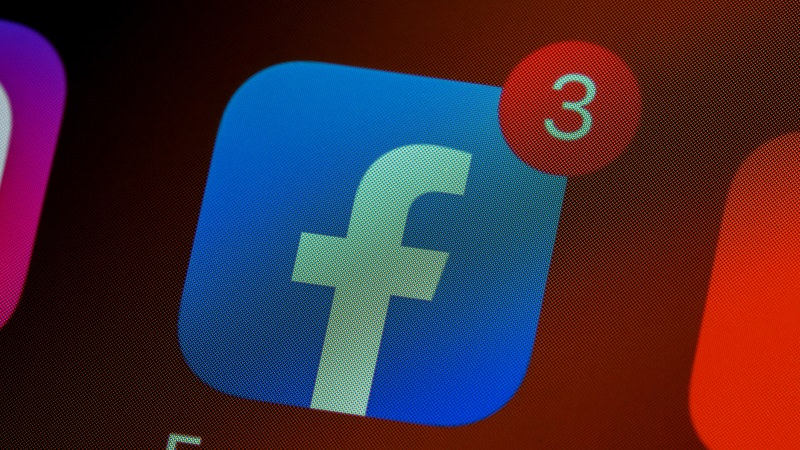The days when Facebook was the hot social networking platform and meeting place are over. Competition from Tik Tok, Instagram and others is too fierce, yet Mark Zuckerberg’s service continues to grow. A classification.
At more than 16 years old, Facebook is actually already out of puberty. And as with human puberty, founder Mark Zuckerberg’s social network has also undergone a personal transformation over the past three to five years.
Facebook: Still the undisputed No. 1
Because while Facebook was definitely still the coolest kid on the social network playground in 2015 – Instagram was still an insignificant niche platform back then and Tik Tok didn’t even exist yet – the situation looks different at the turn of the year 2020/2021.
In the meantime, the platform is “uncool” to stay in the jargon of the school. If you listen to the public statements, almost no one actually uses the network anymore. If anything, the account just exists. But how much truth is behind the decline?
To the facts: In the third quarter of 2015 – five years ago – Facebook recorded 1.545 billion users around the globe who are active on the platform at least once within a month.
For comparison, here are the figures from the third quarter of 2020: Currently, the monthly active users (MAU) total 2.74 billion people. In a five-year comparison, this corresponds to an increase of more than 77 percent. A decline looks different.
And the situation in Germany also looks quite comparable. Even though the latest figures are from the 2018 annual report, 32 million monthly active and 23 million daily users are unbeaten.
The numbers show: There is no way around Facebook.
How do the numbers increase when private use declines?
This question is probably the most interesting. There are several factors to consider. Let’s start with Facebook usage in Germany. This has remained stable above 30 million users for years.
1. shifts in age groups
What has changed, however, are the age groups: While 92 percent of 16- to 19-year-olds were active on the platform in 2014, today it is just 36 percent. And usage among 20- to 29-year-olds has also dropped from 85 to 73 percent.
At the same time, however, the number of older users has risen significantly. Both the figures for 40- to 49-year-olds (up eight percent to 64 percent) and 50- to 59-year-olds (up twelve percent to 59 percent) have risen.
As a result, the total number of Facebook users in Germany remains almost stable. Only usage is shifting.
2. growth in emerging markets
In addition, we often fail to take off our German glasses when looking at Facebook as a whole, because a look at Facebook’s global growth makes it clear that the platform definitely still has potential. The 3 billion mark is within reach.
Especially in emerging markets in Africa, South America and parts of Asia, Mark Zuckerberg’s network is still the most important platform for communication and organization. And even in its home country – i.e., the U.S. – the numbers are still impressive.
We forget that WhatsApp, the most popular service in Germany with just under 60 million users, tends to lead a shadowy existence in the USA. And Snapchat and Twitter are no longer dependent on the USA. Their users are also increasingly coming from other continents.
3. advertisers and publishers
And the third and final factor in Facebook’s growth is that the social network is not only by far the largest advertising platform in the world, but also the most important one in terms of social media marketing.
Because of its broad distribution within almost all age groups and almost all regions of the world, Facebook is a channel for advertisers and also publishers that cannot be ignored.
For example, in the fall of 2020, there are ten million companies that advertise only on Facebook. If you include the use of the two subsidiaries Instagram and WhatsApp, this figure grows to 200 million companies.
Facebook’s revenue in the third quarter is more than $21.5 billion. In the same period of the previous year 2019, the value was still at 17.7 billion US dollars. So the Corona crisis has not really hurt the advertising business of the largest social network.
After all, more than 95 percent of all revenue comes from advertising.
And if you’re an entrepreneur, publisher, advertiser or influencer who wants to address your customers or promote your own products, you need a Facebook account. Without one, the functions are closed to you.
Conclusion
All the figures emphatically underscore the importance of Facebook. And even if the impression is correct that private use of Facebook is declining in some countries in some age groups, this by no means indicates a global trend.
And when we think of all the social media managers, online marketers and the like who have to use Facebook professionally, it’s also clear that Mark Zuckerberg’s network will probably be with us for the next few years – albeit in a different guise than five or ten years ago.










